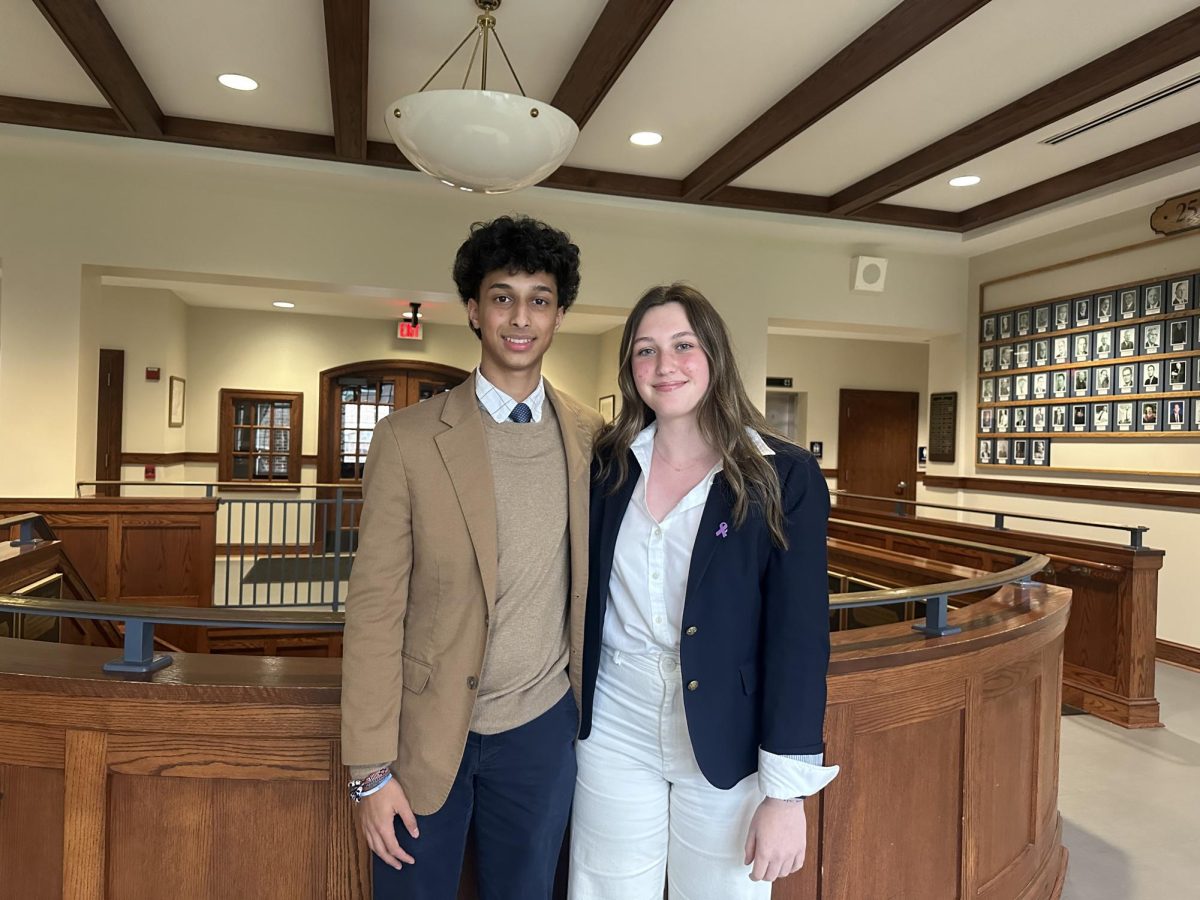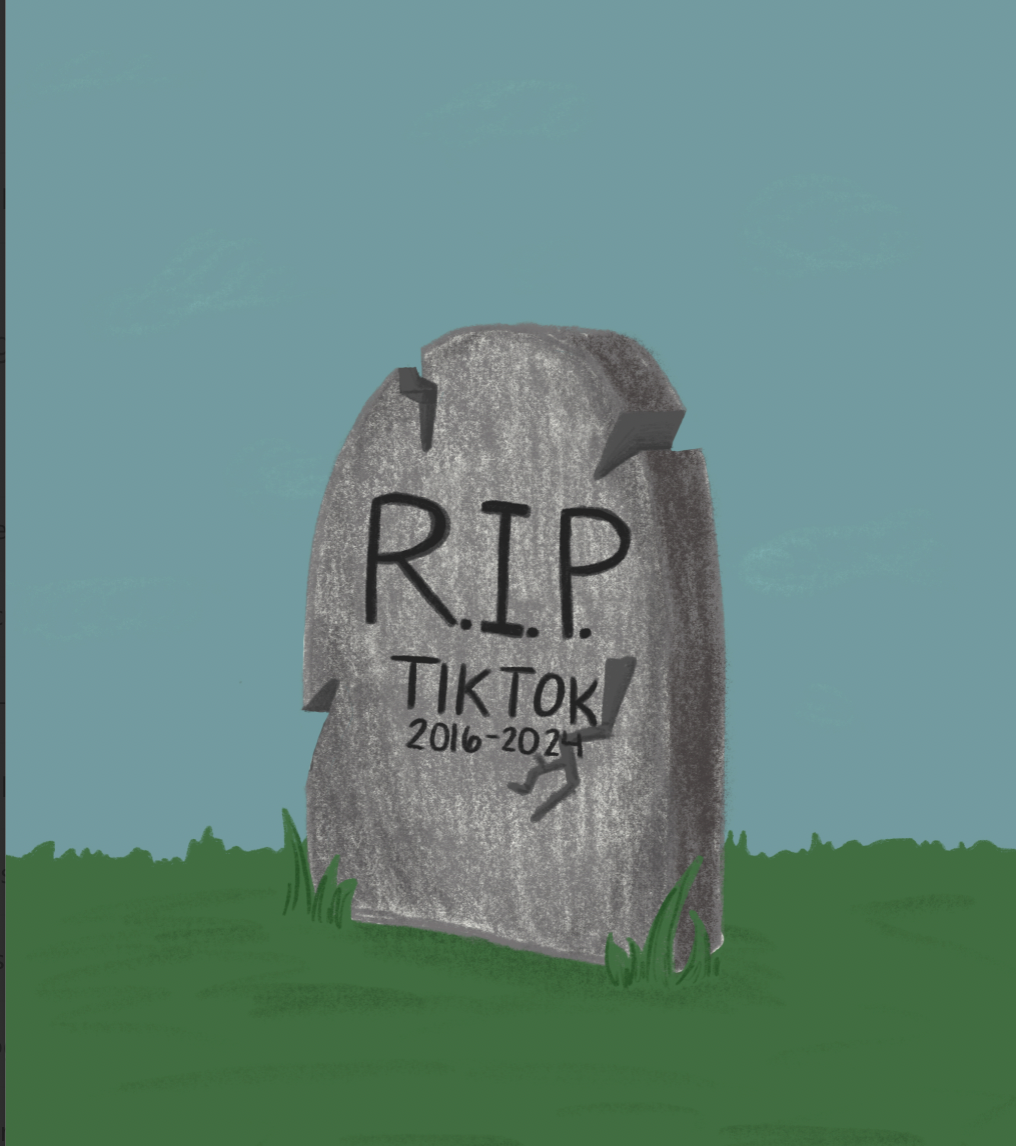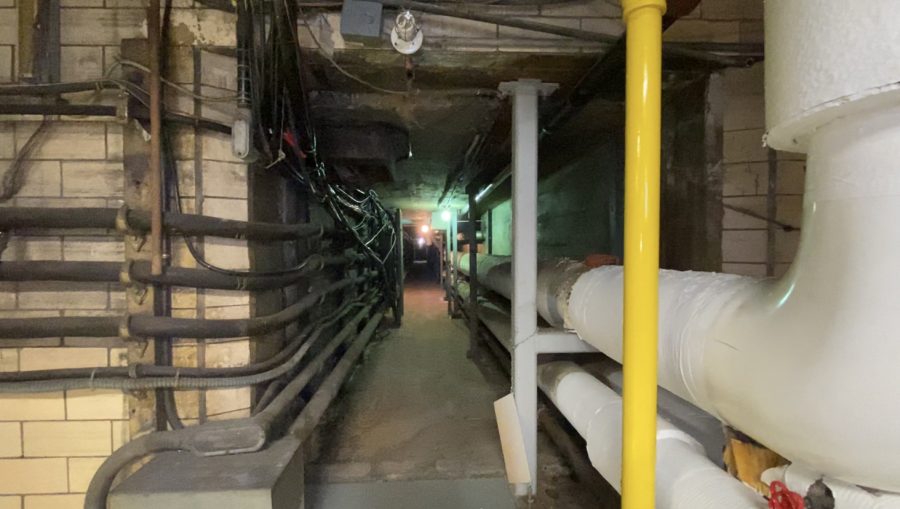Unveiling the mystery of Hill steam tunnels
Media: Jason Zhou ’23
The endless hallway of the steam tunnel
One of Hill’s oldest myths is about the steam tunnels that run under the school. For years, students have speculated about what is in the tunnels and about the mystery behind them. However, as described by the power plant workers, the speculation about the tunnels is exaggerated, and there is actually much more science to the steam tunnels and HVAC than meets the eye.
“There’s a lot of rumors about the tunnels at the school. It’s always because what you can’t see you can build in your mind as something extravagant,” Jerry Alderfer, director of central cooling and heating, said.
Many students have speculated if the tunnels are walkable. One of the most asked questions by students is if you can have a meeting or gather down in the tunnels. Alderfer said, “I’ve been here for nine years, and I’ve heard rumors from the students that there are rooms down in there where you can have a gathering.”
However, Alderfer explained that the “tunnels are basically just utilities; that’s all that’s in there.” He added that the meeting rooms are a myth and also said most of the tunnels are not even walkable, “just crawlable.”
The steam tunnels are a necessity to help the Hill community bear cold winters, and they are a challenging work environment. “High-pressure steam boilers are extremely dangerous; a steam leak could literally burn your skin off,” first shift powerhouse technician Gary Allen said.
It is important to know how dangerous the tunnels are. Allen talked about the precautions his team takes before stepping foot in the tunnels. He said, “I will never go into a tunnel alone, and I do this just because, if something happens, if we can’t call 911 or security, we’re in trouble. I always gear up with everything.”
The powerplant and the people who work there are an important part of the school. Alderfer said, “I like the ability to help. I’m not a teacher, so I can’t help you guys in that way, but I like to be able to make your areas as comfortable as possible, especially in the academic buildings. You can be taking the biggest test of your life and, if you’re too hot or too cold, you won’t be able to concentrate.”
Not only is the power plant an important part of making the school function, but it also takes a lot of resources. Alderfer said, “We use between 15,000 and 19,000 kilowatts of electricity every day. That would do most homes for over five years, and that’s just for one day.”
With how high scale the power plant is, some students might be concerned about the environmental footprint the campus leaves on the planet. Ron Dennis, the powerhouse second shift operator, said that the HVAC team does everything they can to help with the campus’ environmental footprint: “I am all for saving energy and reducing anything we can. We do a lot of that down here by the way we operate our equipment.”
The powerhouse team also has a mindset focused on energy conservation. “Energy conservation is important. Obviously, as we get fossil fuels and all that, we have to do everything we can to make sure to keep our energy footprint down as well,” Allan said.
Both Allen and Dennis had positive things to say about their work environment. In particular, they said that they loved the people. Allen said, “I love it here; I’ve learned a lot since I’ve been here. There are good people; it’s a great place to work, and I’m happy coming here every day.” Dennis added, “I like the people that I work with. I was in the Navy, and I worked on a ship down in the boiler room, which was basically the same as we are doing here but this is a lot smaller.”
All the HVAC team members are experienced professionals who are well-prepared and trained for certain situations. “I’ve been doing heating work all my life since I was probably younger than you guys,” Alderfer said.
Other employees at the powerhouse also have deep roots in their jobs. Some of them have been working in heating and air conditioning their whole lives. Dennis said, “Working with steam and powerhouses and powerhouses and this type of equipment has been in my blood since I was 18 years old.”
The HVAC team all have their own set of stories about their work. For example, a couple of years ago, Allen was on a night shift in the powerhouse. He saw a plastic bag move in the corner of where the generators are. Too scared to go check it out, he ended up sitting inside the office, not moving an inch until his coworker came in the morning. They flipped the bag up, and it was just a possum. Allen had trouble catching the possum, and he said that the possum might well as be in their workspace to this day.
The Hill community has made efforts in the past to help out with maintaining a small energy footprint. “The kids over the years have asked ‘what can we do to help make the school use less energy?’ and it’s hard because it’s mostly big equipment. Just be thankful that there’s people in the world that want you guys to get this education because it takes a tremendous amount of resources to run this school. Most people don’t know that,” Alderfer said.





























